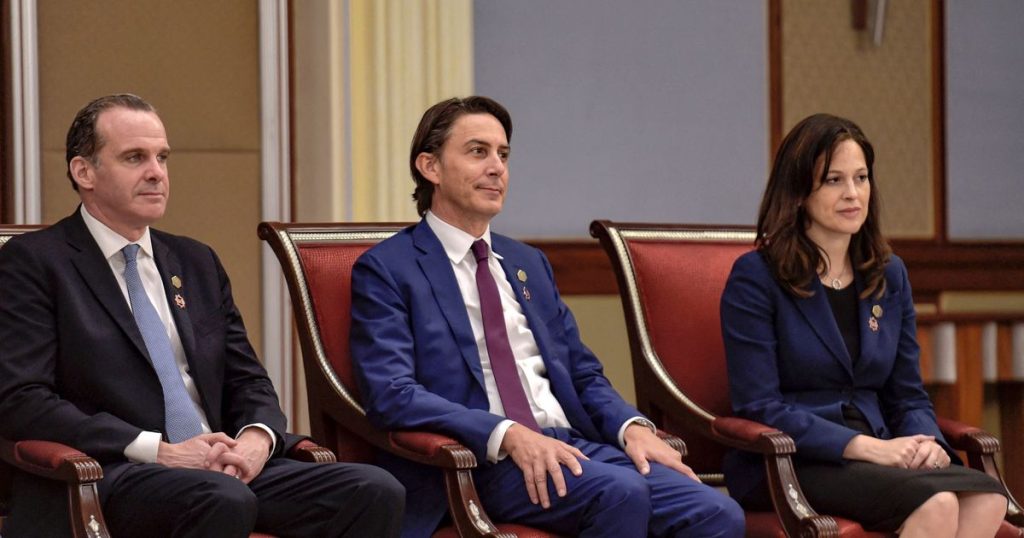The Middle East-America Dialogue summit held at the Waldorf Astoria in Washington concluded with little representation of the Palestinian perspective, despite the ongoing crisis in Gaza. The invite-only event featured prominent figures in Middle East policy discussing closer U.S.-Israel ties and the conflict with Iran but largely ignored the plight of Palestinians living through a deadly war. The lack of Palestinian voices and focus on erasing their experience was noted by attendees, who described the conference as primarily an Israel-America dialogue.
The summit included key players in Middle East policy from both Republican and Democratic parties, with top aides to President Joe Biden and potential future administration officials in attendance. The agenda was confidential, but discussions reportedly centered on strengthening U.S.-Israel ties and addressing the conflict with Iran. Themes of the need for action against Iran and vague ideas on how to achieve this were prevalent throughout the conference, while discussions on the Palestinian situation were notably absent.
The event, organized by figures with ties to both the Trump and Biden administrations, emphasized the importance of fostering a nonpartisan dialogue on U.S.-Middle East relations. Despite this, the summit largely ignored the Palestinian perspective in favor of promoting strong U.S.-Israel ties. The involvement of individuals advocating for controversial policies, such as Israeli settlements in the West Bank, and downplaying attacks on civilians during the Gaza war, further highlighted the pro-Israel focus of the conference.
While the summit featured a mix of Israeli political figures from the government and opposition, discussions largely centered on ceasefire deals in Gaza and the potential for conflict with Hezbollah in Lebanon. Israeli politicians highlighted the necessity of a ceasefire and the threat posed by Hezbollah, with some advocating for a shift in military focus away from Gaza. U.S. officials expressed concerns over a potential conflict in Lebanon, noting the potential for even greater devastation than the ongoing Gaza offensive.
Critics of the summit noted the lack of Palestinian representation and the failure to address the humanitarian crisis unfolding in Gaza. The absence of Palestinian voices and focus on building relationships between Israel and other Arab nations at the expense of Palestinian interests was seen as a contributing factor to the ongoing conflict in the region. While the summit aimed to foster dialogue on the future of the Middle East, it was criticized for neglecting a key perspective in the region’s complex dynamics.


